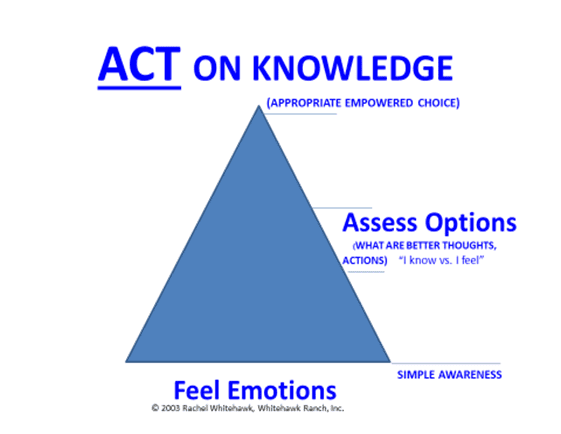
Are you overthinking to the point of paralysis and fear? Is your mind filled with so many thoughts that you do not know what to do next or how to handle it? If overthinking is causing you to struggle, you will be glad to know that it is possible to find mental peace again.
You can learn to calm your mind, achieve greater focus, and find the direction that is right for you!
Use these techniques to help quiet your mind and experience greater peace:
- Avoid obsessing about completely silencing the mind. You may wish that you could stop your thoughts altogether. However, this isn’t the best tactic for dealing with overthinking. Learn the skill of visualization or guided imagery. Guided imagery is remarkably effective to allow our minds to do what I have termed “actively relax”. It is often challenging for many of us to meditate and think of “nothing”. Guided Imagery allows us to participate in creating a mental space that allows our minds to create a place of relaxation that affords us the ability to actively practice a repetitive scenario that frees us from our current mindset
- The more you try to stop thinking, the more your thoughts will flow. The opposite of what you want actually starts to happen.
- Understand that you’ll always have thoughts. All human beings have thoughts. Recognize this is a normal process. Although you can learn to silence your mind in certain situations, you can achieve great peace by learning to take control of what you think, instead.
.

This slide gives you a visual concept of the anatomy of an emotion. At the base of the triangle is when we begin to feel an emotion. We need to first acknowledge it and be aware of it and allow ourselves to feel the emotion. Next, we need to assess what that emotion is prompting us to think or do. Then we need to assess those promptings to see if another thought or action would be better. Once we have taken the time analyze our choices, we are more likely to act in an informed manner that is better than simply acting on the initial impulse. Brilliantly simple!!
- Feel
- Assess
- Act
- Avoid judging your thoughts. It is tempting to get upset if you have negative thoughts or emotions. You may be quick to judge and try to squash them. You can change your current outlook by balancing your negative thoughts with some positive thoughts.
For example, if you are thinking, “I will never understand this,” you can replace that thought with, “I am excited to keep learning.” This offers a shift in perspective that will help with tolerating emotional distress.
Knowing how to regulate your emotions is a powerful tool for resilience. This skill offers the ability to sit with emotions and move on from them without making impulsive decisions.
When you are going through a stressful period of life, it can feel like everything is out of control. We feel overwhelmed but we are never really overwhelmed. You can control your reactions.
Our wrong thinking can trick us into thinking and feeling as if what comes our way is too much to handle and we can often feel overwhelmed. We FEEL as if we cannot handle things and it appears to us that we cannot because often our emotions get the better of us but in reality, we are never given more than we can handle. What freedom that brings us if we only allow ourselves to believe it.
- Instead of judging and criticizing your thoughts, accept them for normal human emotions. Acknowledge them and then move on. Learn to love your mind. This will help your mind calm down because you won’t be fighting internally.
- Remember, you wouldn’t be able to appreciate the positive thoughts if you never had negative ones.
- Try to stay present. Overthinking often comes because you are worried about the future or regret something that has already happened. You allow stress and anxiety to take over. You start imagining different outcomes, with most of them being negative, and you start living in fear.
- If you stay in the present moment, then fear can’t take over, and overthinking isn’t an issue. You’re able to focus on what you have to do each day to survive and thrive. Be okay with the world. The word okay doesn’t mean perfection. It also doesn’t mean awful. It is the balance between positive and negative. It is the thin line between them that allows you to find mental peace.
Practice these mindfulness skills for emotion regulation:
- Observe your breathing. Set a timer for three minutes and simply
become aware of your breathing. You do not need to breathe in a certain
way or force yourself to think of anything in particular. If you can spend
time simply noticing your breath, you will begin to feel calm. When your
mind wanders, just go back to noticing your breath.
- Spend ten minutes coloring, painting or creating art. Whether or not you
consider yourself creative, coloring or painting or any other craft-like
activity is a great way to free our cognitive power and release our
emotions. Do not underestimate the
value of this suggestion. It may see rather rudimentary, but it is
truly effective.
- Spend time with animals. There is extensive
research to support the idea that engaging with animals brings us untold
joy, peace, and renewal. Animal interaction will give you a sense of calm,
comfort and ease. One of our greatest tools at the ranch is the use of our
6 horses in our unique skill-building program with our clients. (not to
mention our potbellied pig Napoleon and our affectionate cat Gabbana!)
- Getting outside is a path to mindfulness when you do it with
intention. Walk outside with the intention to simply notice. Observe
your surroundings and name the things you see, hear, or smell. Time spent
in nature is invaluable.
- Being okay also means that you learn to accept what is happening in your life.
- Being okay means that you learn to love in your current state and with what you are doing right now. You learn to appreciate what you have and the people around you. It is important to find gratitude in the little things.
- You do not have to pretend that negative things do not exist, but you do not have to focus on them either. Center your attention on appreciating life. Whether you are in a time of distress or a time of peacefulness, it is important to actively foster positive experiences. Sometimes we get lost in the hustle and bustle of life and we forget to have fun on purpose. By doing things that create a pleasant experience (fun), you are actually setting yourself up for success in the future. The more our brains conceive of joy, the smoother and more readily our brains regulate other thoughts and ideas about ourselves. Value yourself enough to schedule time to enjoy life. We only get this one life.
Your thoughts can save you, but they can also destroy you.Your mind can be a busy place, so it is important to learn ways to deal effectively with some of the thoughts. Strategies like these can help you deal with your overthinking so you can find peace.

